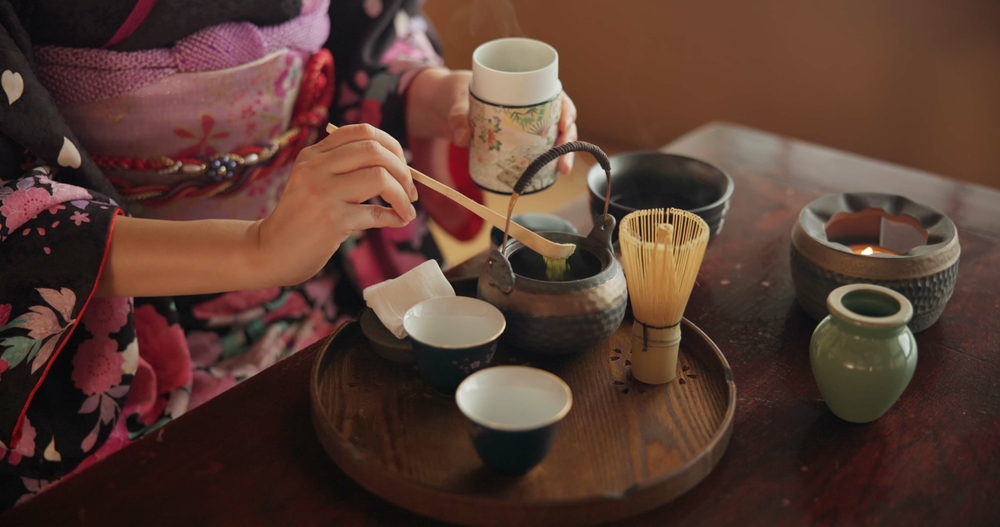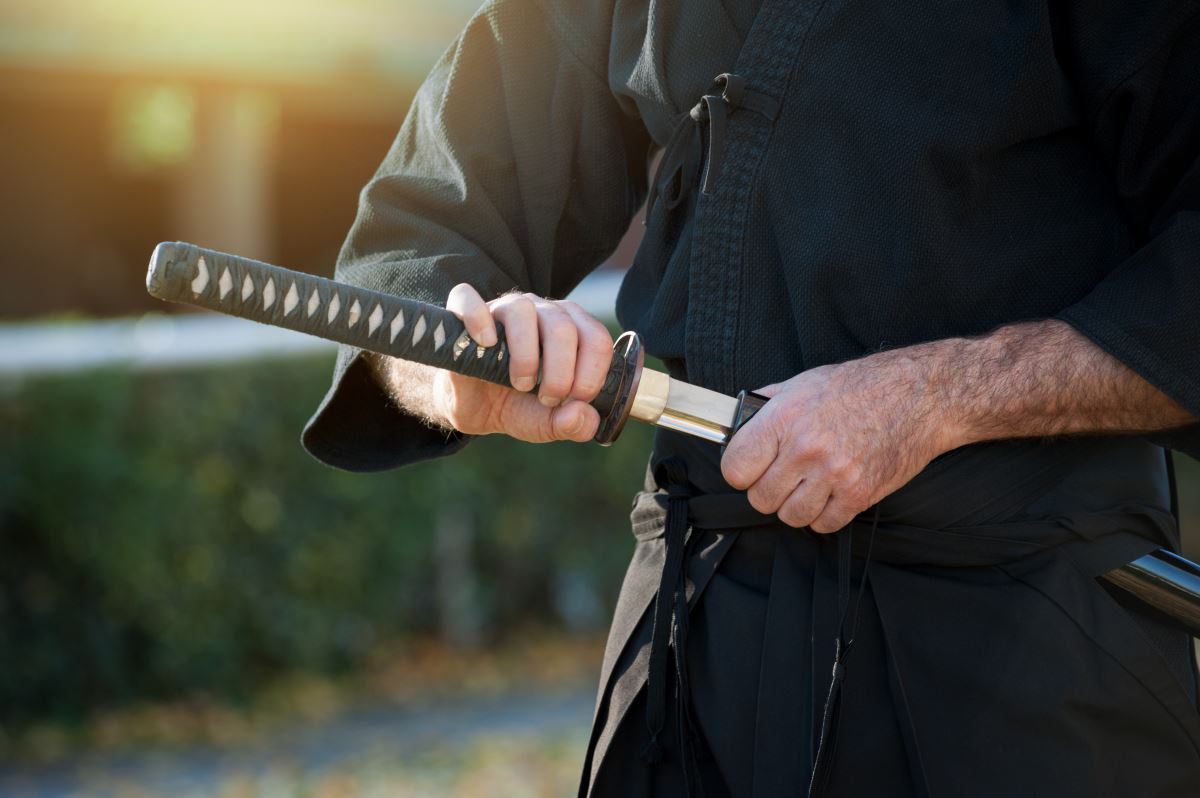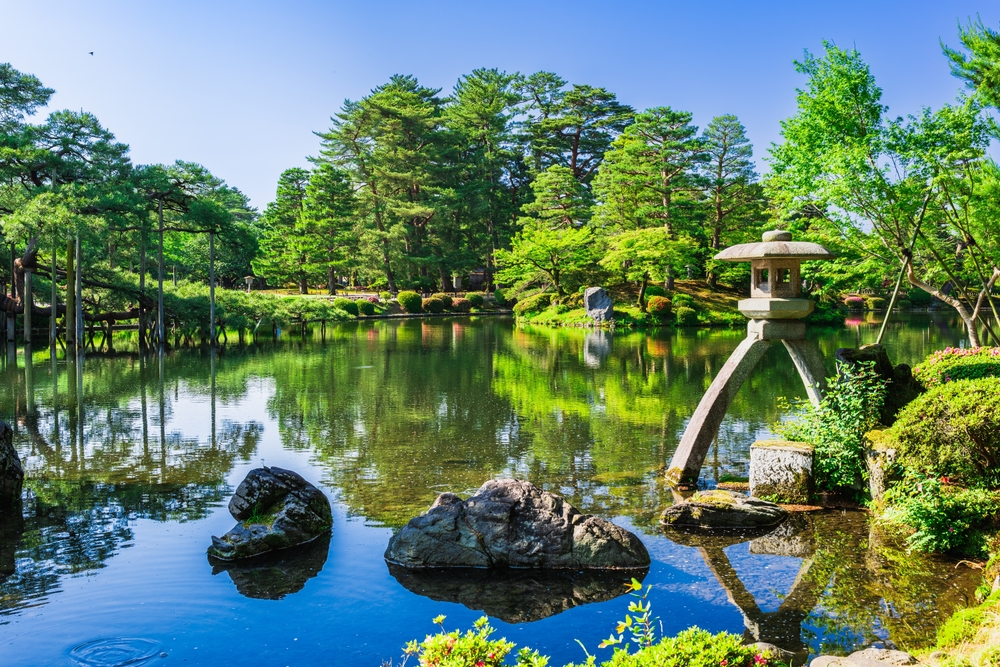The Best Cultural Experiences in Japan: Traditions, Activities & Tours
The Best Cultural Experiences in Japan: Traditions, Activities & Tours
Japan is a land of enchanting contrasts, where ancient traditions seamlessly intertwine with the pulse of modern life, offering a cultural experience like no other.
Steeped in history, Japan’s rich heritage invites you to dive into its captivating world of Japanese culture and traditions - from the serene ritual of a tea ceremony to the intricate art of Japanese craftsmanship and the spiritual serenity found in temples and shrines.
But what can you experience in Japan? You can immerse yourself in traditional Japan, where every moment holds a sense of mindfulness and respect, and every experience reveals the delicate balance between nature and humanity. For those looking to truly understand culture in Japan, there is no better way than through first-hand encounters with these age-old practices.
After her trip to Ishikawa, our Senior Product Executive, Noemi Espinosa, who has ventured deep into the heart of Japan, has explored these fascinating traditions herself and is eager to share the hidden gems she uncovered. Read on to see her personal journey into the soul of Japan's traditions.
%20(1)(2).jpg)
Noemi Espinosa
Senior Product Executive
"When travelling to Japan, it’s easy to focus on iconic sights and the food scene, but to truly understand the essence of the country, diving into cultural experiences is essential.
Japan’s traditions, practised with meticulous attention and respect, are at the core of its unique identity. Every ritual, from tea ceremonies to crafting pottery, is carried out with purpose and care, where each step holds meaning.
Ishikawa Prefecture is one of the best places to experience this first-hand; it’s known for traditional crafts like gold leaf production, lacquerware, and ceramics, all of which reveal a depth of Japanese craftsmanship and dedication to perfection.
Here’s a look at the activities I tried and why they’re worth doing."
Unique Cultural Experiences in Japan
Japan offers unforgettable cultural experiences that immerse you in its rich traditions. You can try your hand at Temari sushi making in Kanazawa, where seasonal ingredients take centre stage, or embrace mindfulness with a tea ceremony in Kenrokuen Garden - both provide a deeper connection to Japanese culture activities and craftsmanship. For travellers looking to connect with Japan’s traditions in a down-to-earth way, Ishikawa has a lot to offer without the usual frills.
1. Temari Sushi Making at Kanazawa House
.png) Sushi making at Kanazawa House
Sushi making at Kanazawa House
Temari sushi, with its small, delicate shape and vibrant toppings, offers a beautiful introduction to Japanese cuisine and the deeper cultural traditions that define everyday life in Japan.
At Kanazawa House, a welcoming space often visited by Japanese students and travellers alike, guests can experience Japanese culture through a hands-on sushi-making session that reflects the rich cultural heritage of the region.
Learn the traditional techniques behind preparing and shaping sushi rice, a process that draws on the Japanese value of precision and harmony - elements found across many Japanese art forms, from flower arrangement to Japanese calligraphy. Toppings vary with the seasons, showcasing the region's commitment to fresh ingredients and the aesthetics of balance, much like in a traditional Japanese tea ceremony or a rock garden.
2. Japanese Tea Ceremony in Kenrokuen Garden
 Japanese tea ceremony
Japanese tea ceremony
Experiencing a traditional Japanese tea ceremony in the serene setting of Kenrokuen Garden is like stepping into another time.
Nestled within one of Japan’s most celebrated landscape gardens - known for its cherry trees, tranquil paths, and zen-influenced rock gardens - the tea house offers a quiet escape from modern life. Here, guests are invited to witness an art form that embodies the heart of Japanese culture: harmony, respect, purity, and tranquillity.
Every movement in the tea ceremony - from cleansing the tea bowl to the precise way hot water is poured - is rich with symbolism and guided by centuries-old customs rooted in zen Buddhism. It’s not just about drinking tea, but about cultivating presence and appreciation. Even the way the tea is presented reflects the Japanese way of finding beauty in simplicity and mindfulness.
- Learn all about the traditional tea while sipping on freshly brewed green tea with our Culture & Cuisine of Japan tour.
3. Meeting a Samurai Descendant and Holding Samurai Swords
 Samurai descendant
Samurai descendant
Meeting a samurai descendant and holding an authentic katana at a traditional samurai class was an unforgettable way to connect with Japanese history and cultural traditions.
The highlight was being shown a sword used during real battles - its blade still bearing the dents and markings from formal occasions of war. This tactile link to Japan’s feudal past, rich with stories of honour and resilience, brought the samurai era vividly to life.
Wearing traditional Japanese clothing, including a kimono, added to the immersive nature of the experience. Feeling the weight of the sword while dressed in period attire offered a unique glimpse into the Japanese way - a code of discipline and respect that continues to shape Japanese culture today. The session also touched on martial arts techniques and the symbolism of the samurai within the wider context of Japanese tradition.
- Explore Kanazawa's vibrant samurai history and culture with our Warrior's Way: A Shogun-Inspired Journey.
4. Gold Leaf Experience
(1).jpg) Noemi at the Gold Leaf experience
Noemi at the Gold Leaf experience
Kanazawa is renowned as one of the Japanese islands’ key centres for gold leaf production, a tradition that dates back to the Meiji period.
Taking part in this experience offered a rare insight into the art form of gold leaf crafting - where wafer-thin sheets, lighter than air, are delicately applied to objects ranging from lacquerware to folding screens. The process, requiring exceptional patience and precision, reflects the quiet dedication found throughout traditional Japanese craftsmanship.
Trying it myself was a chance to appreciate the fusion of beautiful culture and artisanal mastery. Under the guidance of skilled craftspeople, I came to understand how the techniques have been passed down through generations, their roots tracing back to times when gold leaf adorned temples, statues, and even items used in the imperial family’s rituals.
5. Yamanaka Lacquerware Craft Tour
.png) Yamanaka Lacquerware Craft Tour
Yamanaka Lacquerware Craft Tour
Yamanaka, nestled in the mountains of Ishikawa Prefecture, is famed for its exquisite lacquerware - a craft that reflects Japan’s rich history of traditional arts.
This ancient technique involves multiple stages: turning the wood on a lathe, applying layers of lacquer derived from tree sap, and meticulously polishing each coat to achieve a deep, lustrous finish. Some pieces also feature hand-painted motifs or accents in gold and silver, revealing a connection to ink painting and other refined Japanese art forms.
Observing the artisans at work felt like witnessing a quiet form of Japanese performing arts - each gesture precise, each decision rooted in centuries of inherited technique. Many of the tools used today are unchanged since the Edo period, and the skills often begin developing in childhood, sometimes within families who have been part of the trade for generations.
6. Naohiko Noguchi Sake Tasting
.png) Naohiko Noguchi Sake Tasting
Naohiko Noguchi Sake Tasting
At the Naohiko Noguchi Sake Institute, visitors are invited into the world of one of Japan’s most revered master brewers.
With a career spanning decades, Noguchi-san is celebrated for preserving and refining traditional Japanese brewing methods while gently evolving them for modern palates. His sake-making philosophy draws from cultural traditions that stretch back to the Heian period, where sake played an important role in ceremonies and daily rituals across the Japanese islands.
The tasting itself was a journey through flavour - ranging from crisp, clean varieties to more robust, full-bodied brews. Each sake reflected not just ingredients and regional techniques, but also the beautiful culture and seasonal awareness so central to Japanese cuisine. Tasting them side by side offered a deeper appreciation for the skill involved and the quiet artistry behind the brew, often compared to other traditional arts like ink painting or flower arrangement.
- Our Hidden Flavours of Japan Small Group Tour offers the chance to visit a hidden sake shop where the owner, a passionate sake expert with over 10,000 bottles, shares his dedication to preserving traditional brewing methods.
7. Kinzagama Kiln Workshop
.png) Kinzagama Kiln Workshop
Kinzagama Kiln Workshop
Set in a quiet corner of Ishikawa, this hand-on pottery workshop begins with a short talk on the kiln’s rich history, tracing its roots back to techniques influenced by both local craftsmanship and styles that developed during the Edo period.
Enjoy decorating your own ceramic piece - choosing from patterns inspired by nature, floating world aesthetics, or simple geometric motifs.
This activity highlights the practical beauty of Japanese art, where even everyday items carry personal meaning. Like ink painting or flower arrangement, pottery in Japan is as much about process and intention as it is about the final object. The act of painting clay, shaping form, and imagining how the finished piece will be used reflects a deep respect for everyday life and the tactile world.
Why Japan is a Top Destination for Cultural Experiences
 Ishikawa, Japan
Ishikawa, Japan
Japan is a top destination for cultural experiences, offering a unique blend of ancient traditions and modern life. From participating in a tea ceremony to learning the art of sushi-making, each experience offers a deeper connection to Japanese culture.
Whether you’re exploring the rich craftsmanship of gold leaf or the historic samurai legacy, Japan invites travellers to embrace its traditions with mindfulness and respect. By engaging in these authentic activities, you not only gain insight into the country’s rich history but also contribute to the preservation of its cultural heritage.
Ready to uncover the beauty of Japanese cultural experiences?
If you're inspired by Noemi's trip to Ishikawa, be sure to get in touch with our Travel Specialists today. With 50 years' of experience in travelling to the worlds' most unique corners, we have the knowledge to help bring your ultimate journey to Japan the holiday of a lifetime.
Still not convinced? There's so much to explore in Japan, from its traditional Sudo wrestling and popular Japanese music to Onsen hot springs and Geishas in traditional clothing. See our top 15 photos that will make you want to visit Japan.